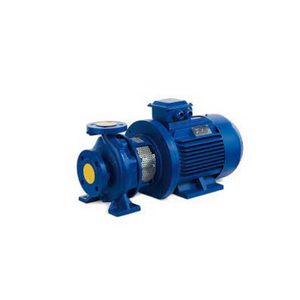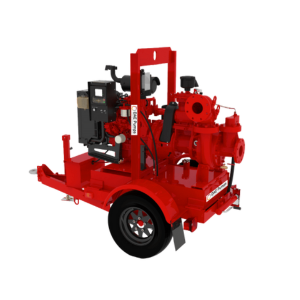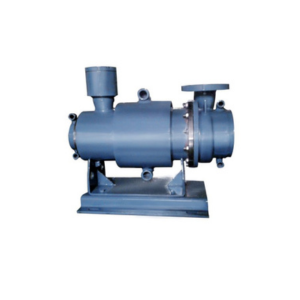Elevate Your Farming with Agriculture Pumps by Pumpscart
Elevate Your Agricultural Operations with Cutting-Edge Pump Solutions from Pumpscart. From Irrigation to Crop Protection, Our Pumps Cultivate Efficiency for a Prosperous Harvest. Unleash the Power of Precision in Agriculture!
Pumpscart’s agriculture pumps are designed to revolutionize farming practices. Our pumps optimize water distribution, irrigate fields efficiently, and enhance crop yields. With our innovative solutions, we empower farmers to save resources and ensure sustainable agricultural practices.
THE PUMPSCART ADVANTAGE
For over sixty years, Pumpscart has been the global leader in providing pumps and accessories to the world of water and fluid applications. Based in Reggio Emilia – Italy, each Pumpscart is developed with Italian design and innovation that brings performance that lasts a lifetime. Pumpscart offers a wide range of diaphragm, triplex and axial high-pressure plunger pumps and complimentary accessories. With a strong distribution channel, Pumpscart can provide fast solutions and new concepts to the world of water and fluid applications. With Pumpscart, you will always get the following:
Performance Capabilities –Pumpscarts and accessories can provide up to 550 HP, 128 GPM and 40,000 PSI.
Robust Product Line – Pumpscarts offers more than 1,000 pumps and accessories offered for a wide range of industries and applications.
Problem Solving Mentality – Every problem has a solution. With our history, quality, innovation and global affiliations; no problem is too big for us to tackle.
360° Customer Service – From the beginning of the order to when it reaches your doorstep, Pumpscart has a knowledgeable customer service staff that provides more answers than questions.
Centralized Location – Based in Paynesville, MN, easily get quick turn-around on your orders.
Pump Types Used in Agriculture

Positive Displacement Pumps
These pumps function by capturing a predetermined volume of fluid and then releasing it. They are perfect for precise fluid flow metering and control.
Application: Positive displacement pumps are employed in processes that call for exact flow rates, such as the transfer of viscous liquids and the distribution of liquid fertilizers.

Centrifugal pumps
Centrifugal pumps are the workhorses of agriculture because of their versatility. They use centrifugal force to transport water and are frequently employed for delivering fresh water to households, moving water to livestock, and supplying rural communities with important water supplies. They are a mainstay in the agricultural industry because of their efficiency, dependability, and simplicity of operation.
Application: Village Water Supplies, Domestic Water, and Livestock Water Transfer

Submersible pumps
A a submersible pump is installed below the surface of the water. It consists of waterproof elements. Submersible pumps can be single staged pumps or multi-staged pumps (a combination of many single staged pumps). They are usually operated by electrical energy. They can be operated by solar energy, wind energy, hydro energy, etc. They can be used when the water level of the water source is shallow.

End-suction centrifugal pumps
All the portable types of pumps, including booster pumps, are end-suction centrifugal pumps. They are often connected with a rotating motor. These pumps are not suitable to use when the water source is situated lower than 4 feet from the pump. They are usually operated by electrical energy. They can be operated by solar energy, wind energy, hydro energy, etc. They can be used when the water level is moderately deep.

Jet pumps
A jet pump or a hydraulic lift has the capability to lift water from a water source, which is situated very low from the level of the pump, but they have a lower flow rate. They are used to pump water from a river or a deeper water body. They are usually operated by electrical energy. They can be operated by solar energy, wind energy, hydro energy, etc. They can be used to pump out water from a very deep water source.

Floating pumps
A floating pump is a normal centrifugal pump that is connected to a floating object. They are used to pump water from the surface of a lake or a pond. They generally make use of submersible pumps. They are usually operated bY electrical energy. They can be operated by solar energy, wind energy, hydro energy, etc. They can be used to pump water from a shallow water body.

Self-Priming Surface Pump:
Self-priming surface pumps are created specifically for irrigation needs. They can transport water to fields for agricultural irrigation by drawing it from a water source, like a well or reservoir. These pumps are especially useful in locations without nearby water sources. Their self-priming ability streamlines the pumping procedure, saving farmers time and labor.
Application: Irrigation

Dynamic Pumps
Dynamic pumps can handle fluids containing solid impurities, such as sand or salt water, which is one of their advantages. Additionally, they are frequently equipped with filters to get rid of these impurities before pumping the fluid. Dynamic pumps can therefore be employed in agriculture for a variety of tasks, such as watering plants and moving liquid between tanks.
Application: Another type of pump that is frequently used in agriculture sectors is the dynamic pump. The centrifugal pump is the most popular type of dynamic pump. Its rotating impeller accelerates the fluid and guides it into the outlet pipe.
Functions:
1. Livestock Water Transfer:
Water must always be available for livestock to drink and bathe. Animals’ health and well-being are promoted by providing them with access to clean water through the use of centrifugal pumps.
2. Domestic Water:
For households in rural and agricultural areas, dependable access to clean, fresh water is crucial. Domestic water is delivered to households using centrifugal pumps, giving a reliable and safe water supply for daily use.
3. Small Irrigation
Crop irrigation is a crucial agricultural practice. To effectively transport water to fields, encourage healthy crop growth, and increase yields, self-priming surface pumps are used.
4. Chemical and Fertilizer Distribution:
In modern farming, precision is essential. Pumps help farmers optimize crop health while minimizing waste by correctly distributing fertilizers and chemicals.
5. Community Water Resources:
For their everyday water needs, many rural communities rely on village water systems. Water is transported by centrifugal pumps from sources to towns and villages, enhancing the quality of life for locals.
Pump Benefits in Agriculture:
1.Increase efficiency: Pumps improve efficiency by automating the water distribution and chemical application processes, lowering labor costs, and assuring consistent outcomes.
2.Water Conservation: Water usage can be optimized with efficient pumps, decreasing waste and contributing to sustainable farming practices.
3.Improved Crop Quality: Proper irrigation and nutrient distribution result in healthier, higher-yielding crops, which improves farm profitability overall.
4.Reduced Downtime: Reliable pumps reduce downtime due to water shortages or equipment problems, ensuring that farm activities continue uninterrupted.
FAQ
What are agriculture pumps?
These pumps are used to irrigate agricultural land for crop production. A pump system for today’s irrigation is not only about the pumps. Variable speed drives, intelligent control and remote management all necessitate the integration of components in an irrigation system.
What types of pumps are used in agriculture?
Centrifugal water pump is most commonly used for agriculture purposes, it is a rotary machine in which an impeller rotates inside a casing, draws in the liquid at its center, and throws out the liquid through an opening at the side of the casing due to centrifugal force.
Why pump is used in agriculture?
Pumps are used extensively in agriculture to move water from the water source, which could be a river, dam or bore, through pipes to either a point of usage or a storage facility, such as a water tank or an irrigation system.
Why water pump is important in agriculture?
Agricultural water pumps offer multiple benefits to farmers, crops and ecosystems. It’s a modern irrigation practice that help to use water more efficiently. Agricultural water pumps come handy in a complishing the purpose and maintaining the greenery throughout the fields.
Agriculture Pumps Specification
Agriculture Application Pumps Specification
The power range of the solar-powered water pump varies from 1 to 10 kW or Hp. … The flow rates also depend on the number of stages in a pump. These pumps are multi-stage with a higher number of impellers making the pumping of water more efficient.
Can pumps be used in organic agriculture?
Without a doubt! Pumps are adaptable and can be used for irrigation, nutrient delivery, and other purposes in organic farming. They aid in the preservation of organic crop health without the usage of synthetic chemicals.
What factors should I consider while choosing a pump for my farm?
Consider the type of crops, the water supply, the desired flow rate, and the distance the water must go. Consulting with a pump professional can assist you in selecting the best pump for your individual needs.
Are there agricultural pump solutions that use less energy?
Yes, many modern pumps are energy efficient, which helps to reduce operating expenses and environmental impact. When shopping for pumps, look for ones that have energy-saving features.
CONCLUSION:
In conclusion, pumps are the heart-beat of contemporary agriculture, ensuring that crops thrive, livestock remains healthy, and farms run smoothly. Choosing the best pump for your agricultural needs can result in higher yields, lower expenses, and a more sustainable farming operation. If you’re not sure which pump is best for you, don’t be afraid to seek expert guidance to make the most of this important agricultural instrument.
